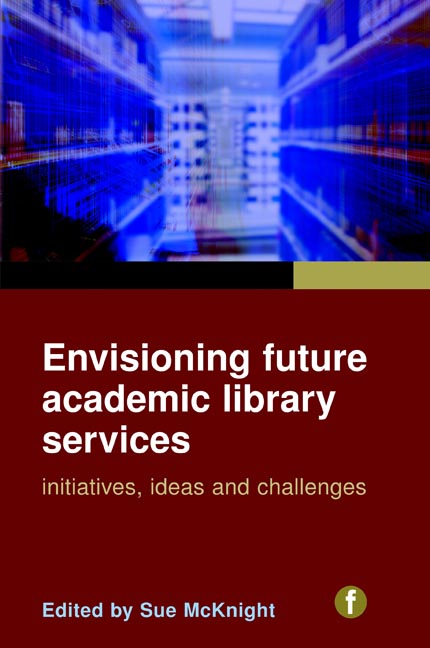Book contents
- Frontmatter
- Contents
- Foreword
- Contributors
- Introduction: We create the future!
- 1 Waiting for the barbarians: seeking solutions or awaiting answers?
- 2 The delete generation: how citizen-created content is transforming libraries
- 3 Libraries as places: challenges for the future
- 4 Web 2.0: redefining and extending the service commitment of the academic library
- 5 Second Life and libraries: boom or bust?
- 6 Some new business ideas in the HSS publishing space: what may librarians expect?
- 7 Loosely joined: the discovery and consumption of scholarly content in the digital era
- 8 Knowledge management, universities and libraries
- 9 Libraries and the management of research data
- 10 The leadership of the future
- 11 Adding value to learning and teaching
- 12 In search of the road ahead: the future of academic libraries in China
- Index
8 - Knowledge management, universities and libraries
Published online by Cambridge University Press: 08 June 2018
- Frontmatter
- Contents
- Foreword
- Contributors
- Introduction: We create the future!
- 1 Waiting for the barbarians: seeking solutions or awaiting answers?
- 2 The delete generation: how citizen-created content is transforming libraries
- 3 Libraries as places: challenges for the future
- 4 Web 2.0: redefining and extending the service commitment of the academic library
- 5 Second Life and libraries: boom or bust?
- 6 Some new business ideas in the HSS publishing space: what may librarians expect?
- 7 Loosely joined: the discovery and consumption of scholarly content in the digital era
- 8 Knowledge management, universities and libraries
- 9 Libraries and the management of research data
- 10 The leadership of the future
- 11 Adding value to learning and teaching
- 12 In search of the road ahead: the future of academic libraries in China
- Index
Summary
Introduction
In this century of creativity and ideas, the most valuable resources available to any organizations are human skills, expertise and relationships. Knowledge Management is about capitalizing on these precious assets in a systematic fashion.
Geisler and Wickramasinghe (2009)The term ‘knowledge management’ became popular in the 1990s. This quote highlights the human and organizational aspects of the concept and the benefit of the approach for improving innovation and productivity. Knowledge has contributed to human existence since the beginning of time and it has been at the heart of universities since their foundation. Lee (2005) notes that in 1965 management-thought leader Drucker postulated that knowledge would replace machinery, land and labour as a primary source of production. The knowledge economy and growth of knowledge workers evidence this trend. The core strength of knowledge management is in knowledge sharing that leads to innovation, change and improvement.
In the 21st century we have cause to reassess the concept, particularly in the higher education environment. Has knowledge management delivered all that was promised in the early hype? Libraries and technology have changed significantly since the early 1990s. Have libraries and technology delivered as expected against the knowledge management agenda, and what lessons have we learnt? This chapter examines the current status of knowledge management and its role in higher education and libraries. Drawing on experience at the University of Melbourne and beyond, we suggest that knowledge management principles are still manifest today. Following on from the initial hype, knowledge management is embedded in many activities that perhaps don't acknowledge the label.
Knowledge management
Knowledge management defined
In 2003 Standards Australia brought together practitioners from a variety of disciplines to develop an interim Australian knowledge management standard. This acknowledged that no single discipline owned knowledge management. The definition embodied in the 2005 standard is holistic:
A trans-disciplinary-approach to improving organisational outcomes and learning through maximising the use of knowledge. It involves the design, implementation and review of social and technological activities and processes to improve the creating, sharing and applying or using of knowledge. Knowledge management is concerned with innovation and sharing behaviours, managing complexity and ambiguity through knowledge networks and connections, exploring smart processes, and deploying people-centric technologies.
(Standards Australia, 2005)- Type
- Chapter
- Information
- Envisioning Future Academic Library ServicesInitiatives, ideas and challenges, pp. 119 - 144Publisher: FacetPrint publication year: 2010



